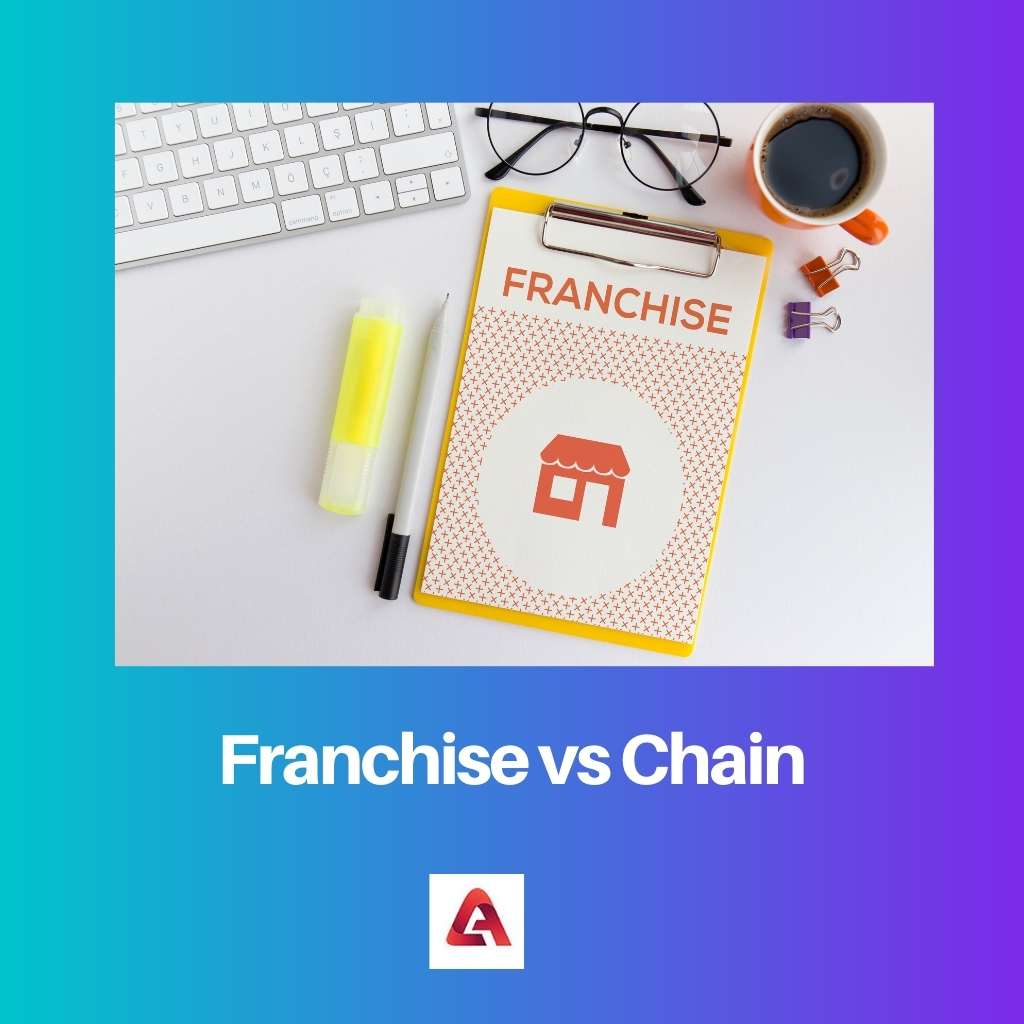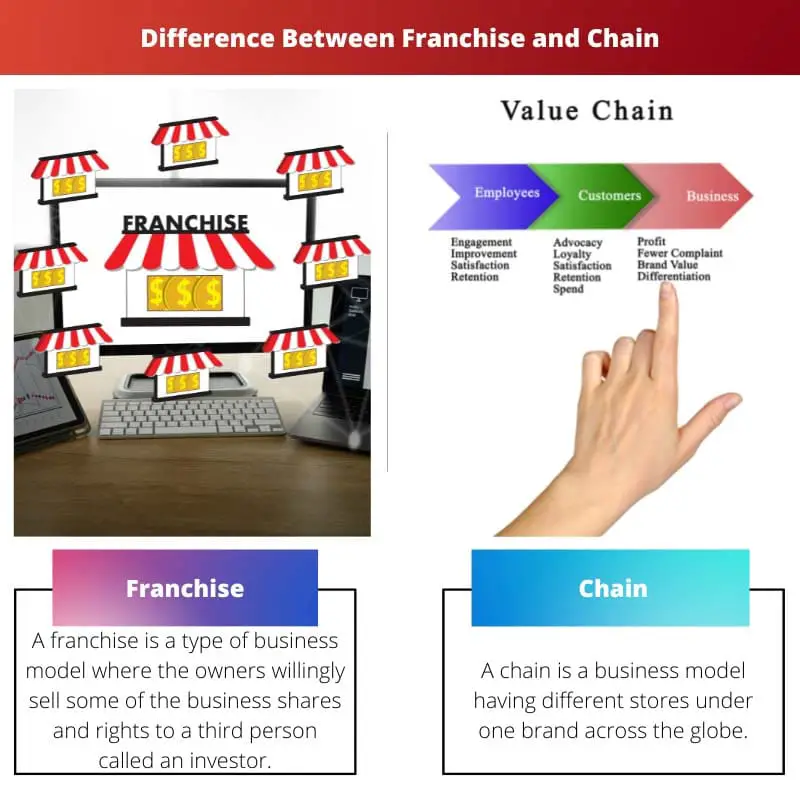For the success and growth of the business, many different types of decisions are taken, keeping in mind its purpose and size. One of the important decisions is to decide whether the units of the business will be held by the business or different investors.
The terms chain and franchise are both important to the world and the people. They are a type of two different business models.
Key Takeaways
- Franchises are business models where independent owners operate under a parent company’s brand and guidance.
- Chains are businesses with multiple locations directly owned and managed by the parent company.
- Franchisees pay fees to the parent company, whereas chain locations contribute profits directly to the parent company.
Franchise vs Chain
A franchise is based on a marketing concept in which different stores or branches are owned by separate individuals solely responsible for the daily operations of that location. A chain is a business in which one parent company owns every location, so each location has the same brand name and policies.

The franchise is a type of business model where the owners willingly sell some of the business shares and rights to a third person called an investor, having many entrepreneurs.
The profits, expenses, and risks are born among franchise owners.
Chain is a business model having different stores under one brand across the globe having just one parent company. The profits, expenses, and risks are only born by the parent company in the chain. Sometimes, chain stores are also called retail stores.
Comparison Table
| Parameters of Comparison | Franchise | Chain |
|---|---|---|
| Definition | A franchise is a type of business model where the owners willingly sell some of the business shares and rights to a third person called an investor. | A chain is a business model having different stores under one brand across the globe. |
| Owners | A franchise is a business that is owned by many entrepreneurs. | A chain is a business model held by only one parent company. |
| Risks | The risk is shared among the franchiser and the franchisee in a franchise. | The risk is borne by the parent company only in the chain. |
| Profits | The profits are distributed among the franchiser and the franchisee in a franchise. | The profits are retained with the parent company. |
| Expenses | The expenses are also shared among the franchiser and the franchisee in a franchise. | The expenses are beard by the parent company only. |
What is Franchise?
A franchise is a business model where the owners willingly sell some of the business shares and rights to a third person called an investor.
The rights like name, logo, and business model are wilfully sold.
The franchisee pays the initial fees for the investors, and when the business starts, the franchiser pays a royal fee.
The royalty fees are calculated accordingly on the percentage of sales on a monthly, quarterly, or yearly basis. Sometimes, the royalty fees can be expensive.
The franchisee, before investing, looks into the business before investing. They find whether the brand is recognized, what training is offered to the newly joined interns, the quality of the product sold, etc.
There are some advantages to operating a franchise like the risk is low, there is financial support for advertising or training, the research burden is reduced, etc.
The application for franchising can be very long, and the requirements can be very demanding. The profit is also split among the franchisee and the franchisers.
Franchising happens when the franchiser agrees to give some rights to an outside investor. There are different types of franchise agreements which have different responsibilities and rights.
A franchise can be a corporation, a sole trader, etc.
Some of the popular franchise brands are KFC, SUBWAY, McDonald’s, Baskin Robbins, etc.
What is Chain?
A chain is a group of stores worldwide that is owned by one company. It is a business model where one company holds and operates all its stores worldwide.
The parent company handles all the management of the stores.
A person holding a business store in four locations is called a chain.
Sometimes, chain stores are also called retail stores.
All the stores share a brand with central management and practices. They also share the same supply chains, discount schemes, and programs for the staff.
The chain store location depends on the parent company. The stores can be of a variety of types, from restaurants to supermarkets. Some of the popular chain stores are Walmart, Target, The body shop, Costco, etc.
The ownership rights remain under one parent company. The profits are retained by the company as there are no middlemen. There is uniformity in their prices all over the world.
Though sometimes, where the stores are more in number, it becomes difficult to have control over time. There is more risk. It is quite expensive to run stores.
Main Differences Between Franchise and Chain
- A franchise has many owners, whereas a chain has only one owner.
- The franchise sells its right to the investors, whereas the chain expands itself by opening stores all over the world.
- The risk is shared among the franchiser and the franchisee in a franchise, whereas the risk is beard by the parent company only in the chain.
- The profits are distributed among the franchiser and the franchisee in a franchise, whereas the profits are retained with the parent company.
- A franchise does not have 100 percent control over the business; it is just the opposite of the chain business model.
- The expenses are also shared among the franchiser and franchisee in a franchise, whereas the expenses are only beard by the parent company.

- https://www.sciencedirect.com/science/article/pii/S0883902600000689
- https://www.sciencedirect.com/science/article/pii/S0305048307001259
